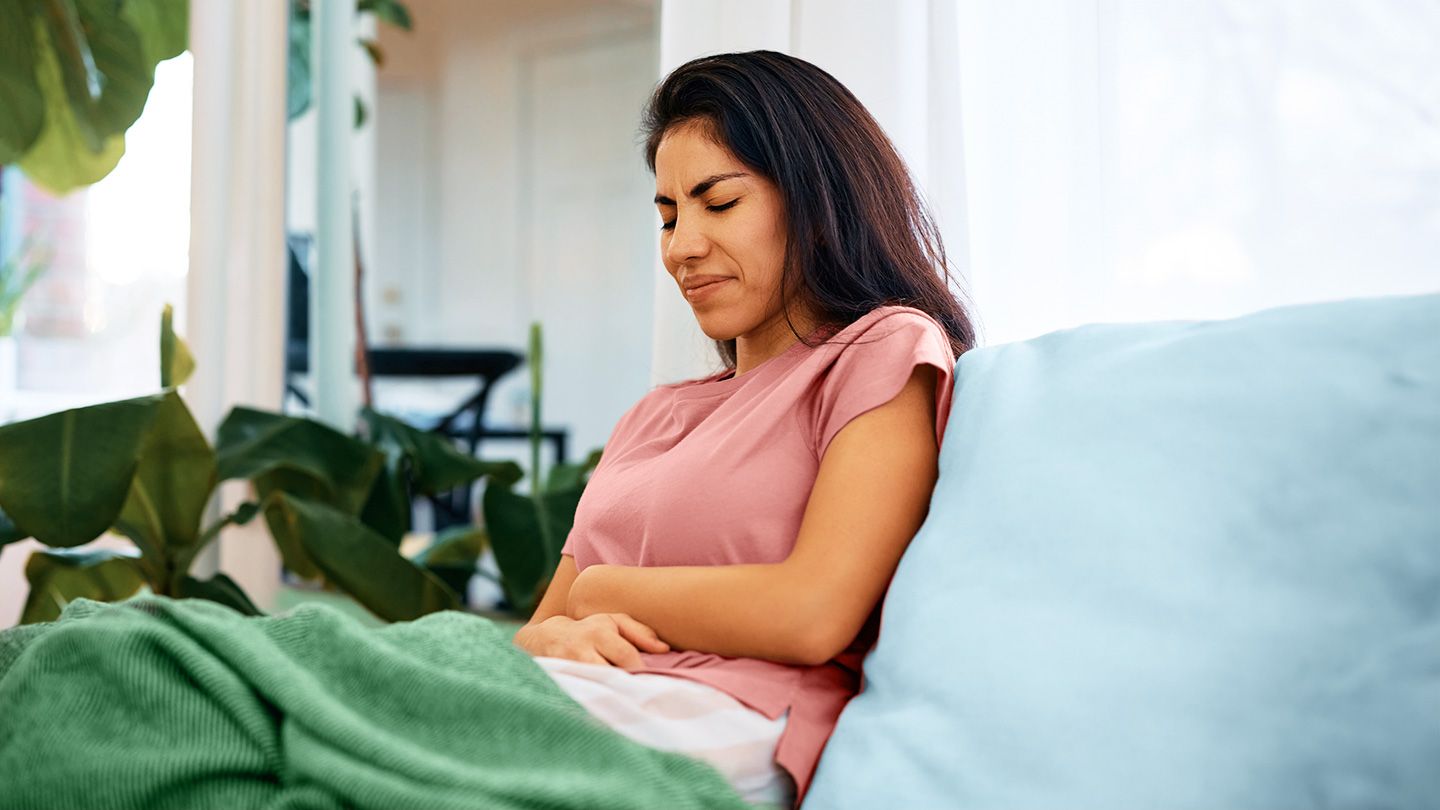- Sudden, sharp pain often felt on one side of the lower belly
- Pain that may spreads to your lower back or thighs
- Shoulder pain, which can occur with internal bleeding
- Dizziness, lightheadedness, or weakness
- Nausea or vomiting
- Fever, low body temperature, or fast heart rate, if infection is present
- Vaginal bleeding or spotting (unrelated to your normal period)
Ovarian cyst rupture pain from ovulation (mittelschmerz) typically lasts less than 24 hours and can be treated with over-the-counter pain medication like ibuprofen, says Dr. Berens. This type of pain is usually mild to moderate and occurs mid-cycle.
Larger cysts can sometimes cause symptoms like pressure on your bladder or constipation due to their size and location, notes Choi. These symptoms can also occur right before they rupture, she says.
What to Do if You Suspect a Cyst Has Ruptured
In the case of internal bleeding, your healthcare provider may need to monitor you to ensure that the bleeding stops and your blood count remains stable so you don’t become anemic, says Berens. “In extreme cases, you may need surgery to stop the bleeding, but this is very rare,” she explains.
For less severe symptoms, Choi recommends rest and over-the-counter pain relievers. Applying a heating pad to your belly may also help manage the discomfort, she adds. But it’s important to contact your healthcare provider for guidance and avoid strenuous activity until you feel better, Choi says.
Read the full article here




